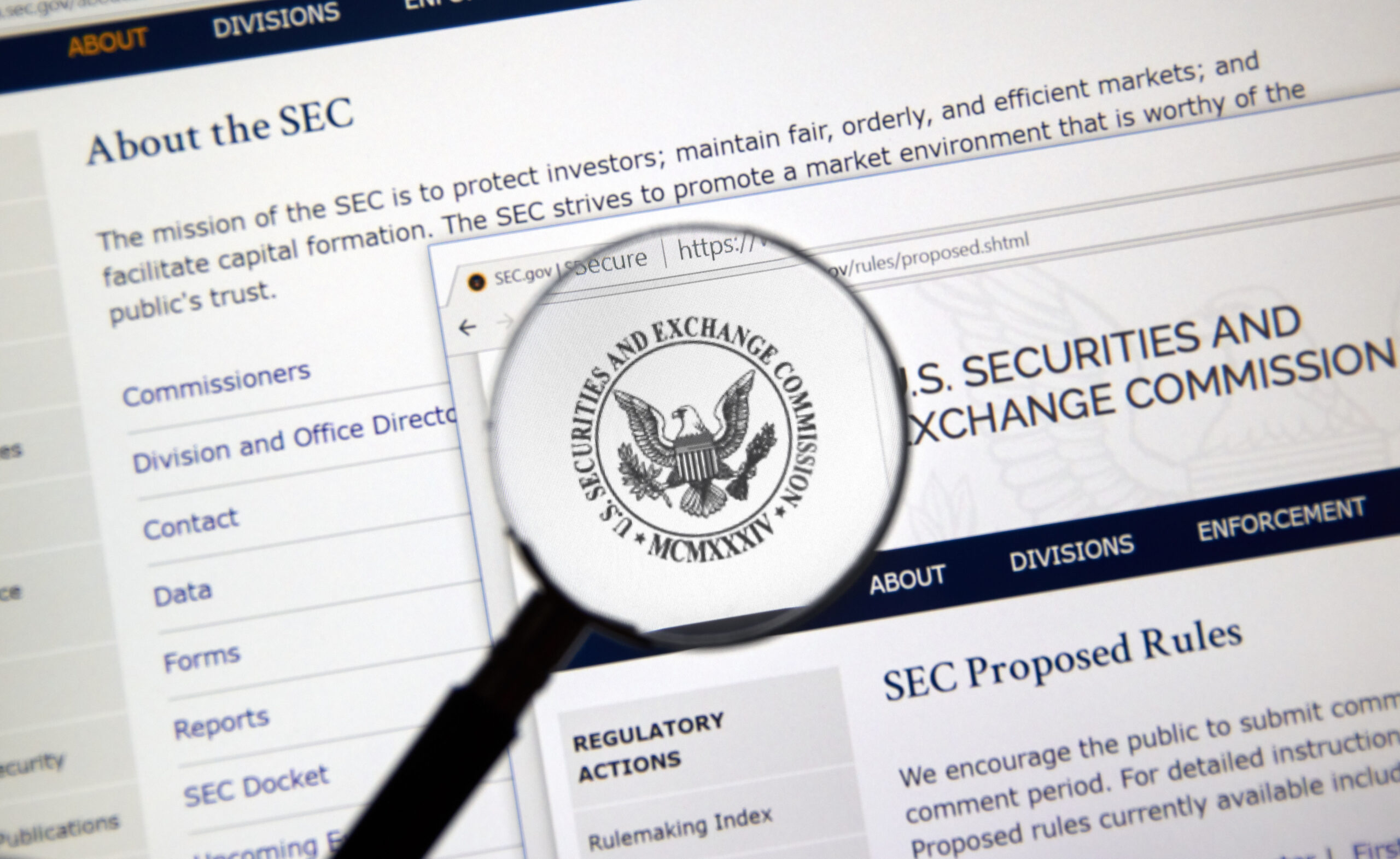The world of finance is filled with complex rules and regulations, and the Securities and Exchange Commission (SEC) plays a crucial role in enforcing those rules. Understanding SEC investigation processes is vital for anyone involved in the financial industry. This blog post will guide you through the process of SEC investigations, from their initiation to possible outcomes, and provide valuable insights into navigating these inquiries with confidence.
Key Takeaways
- SEC Investigations are triggered by market surveillance activities, whistleblower tips, investor complaints and more.
- Formal investigations involve evidence collection and subpoenas while informal inquiries serve as preliminary evaluations.
- During an SEC investigation individuals should seek legal counsel to mitigate potential consequences ranging from litigation to fines & imprisonment.
Initiating an SEC Investigation: The Triggers and Sources

SEC investigations play a pivotal role in fostering a transparent and fair financial market. They aim to safeguard investors and uphold market stability by enforcing federal securities laws, including those related to selling unregistered securities.
But what triggers these investigations? A myriad of sources can trigger SEC investigations, including market surveillance activities, whistleblower tips, investor complaints, other divisions of the SEC, such as FINRA and self-regulatory organizations and news reports. Investigations typically involve cases concerning unregistered securities offerings, insider trading, accounting errors, negligence, market manipulation and fraud. All these are serious offenses and need to be investigated thoroughly..
The statute of limitations for enforcing an SEC investigation is five years, after which administrative proceedings may be initiated.
Types of SEC Investigations: Formal and Informal

The SEC carries out both formal and informal investigations to maintain the financial markets’ integrity.
Formal investigative proceedings involve the issuance of subpoenas and the gathering of specific evidence, while informal investigations are preliminary inquiries to determine the accuracy of any allegations.
Formal Investigations
The initiation of formal investigations comes with the issuance of a formal order, empowering SEC staff to subpoena documents and testimony. The SEC typically employs its subpoena power to acquire documents and other pertinent information from the entity or individual under investigation. This step is taken when alleged violations have caused or are currently causing considerable harm to investors or the integrity of the markets. As part of the process, the SEC staff reviews the sec files to gather evidence and assess the situation.
The Commission, comprised of five commissioners, is responsible for making the decision regarding enforcement action after the SEC staff has reported their findings. A formal order of investigation is issued when there is a reasonable basis to believe that a securities law violation has occurred, granting the SEC staff the authority to lawfully request documents and testimony. The Staff of the Enforcement Division, working alongside law enforcement agencies, is authorized to exercise this authority during formal investigations.
Informal Inquiries
Contrarily, informal inquiries entail the collection of information and evaluation of potential securities law violations without resorting to subpoenas. The SEC evaluates the facts and evidence available and decides whether an enforcement action is necessary.
The SEC employs various methods to develop facts during an investigation. These methods include:
- Informal inquiries
- Witness interviews
- Examining financial and brokerage records
- Reviewing trading data
The purpose of an MUI (Matter Under Inquiry) is to gather additional information to assess whether an investigation is a prudent utilization of SEC resources.
Key Steps in an SEC Investigation

Several critical steps are undertaken during an SEC investigation to aid the Commission in identifying any breaches of securities laws. These steps include:
- Collecting and reviewing documents
- Conducting witness interviews and obtaining testimony
- Analyzing the gathered information in collaboration with other agencies and experts.
Document Collection and Review
In the phase of document collection and review, the SEC solicits relevant information from all entities implicated in the alleged breach. Typical requests include bank and trading account records, internal emails from corporate and personal accounts, and copies of chat room communications.
The Division’s staff may utilize subpoenas to compel witnesses to testify and produce documents such as:
- books
- records
- internal investigation materials
- other relevant documents
during an SEC investigation. The investigation process also entails analyzing documents and data to establish the facts.
Witness Interviews and Testimony
Witness interviews and testimonies play a significant role in SEC investigations, offering additional insights and information on the alleged securities law violations. Among the tools utilized by SEC staff to evaluate the potential for statutory charges is the proffer agreement, which provides information and evidence.
A proffer agreement is necessary to evaluate the viability of a cooperation agreement from the perspective of the SEC. A proffer is typically provided directly by a witness, though it can sometimes be initiated by the witness’s legal counsel.
Analysis and Collaboration with Other Agencies
The SEC works in conjunction with other agencies and experts like forensic accountants and economists to rigorously analyze the gathered information and ascertain the correct course of action. The personnel engaged by the SEC to aid in examining the data include forensic accountants, economists, and securities law professionals.
After the Division staff presents their findings to the SEC Commissioner, the Commissioner may authorize staff to initiate legal proceedings by filing a case in federal court, taking a civil or administrative action with the involvement of an administrative law judge, or referring the case to the Department of Justice for criminal prosecution.
Legal Rights and Representation During an SEC Investigation

Those under scrutiny in SEC investigations are entitled to legal advice and representation throughout the investigative process. If you are under investigation by the SEC, it is strongly recommended that you obtain legal representation before responding to the SEC’s letter. A target of an SEC investigation has the entitlement to legal counsel during all stages of the investigation.
Defendants are entitled to legal representation and may submit a response to the SEC’s claims. Providing the requested documents and information, answering questions truthfully, and following your legal counsel’s instructions during the investigation is of utmost importance.
It is advised to abstain from making any public remarks regarding the investigation and to consult with legal counsel prior to making any statements. Seeking legal advice and representation from experienced securities defense lawyers is vital in navigating SEC investigations and understanding your rights and obligations.
Wells Notice and Responding to Enforcement Actions

A Wells Notice is an official notification from the SEC suggesting potential enforcement action. It is recommended to consult with an experienced securities lawyer upon receiving a Wells Notice. They can provide advice on the available options..
Responding to a Wells Notice entails the submission of a Wells Submission – a succinct rationale explaining why enforcement action is unwarranted. Upon reviewing the Wells Submission, the SEC staff may opt to alter or reverse its recommendation to the SEC. However, submitting a Wells Submission is not mandatory.
It is highly recommended that you consult with a knowledgeable securities lawyer before submitting a Wells Submission. The document will be considered an admission of whatever is written therein, so caution must be taken when preparing it. A well-crafted Wells Submission can potentially influence the outcome of the investigation, making it essential to have expert guidance.
Potential Outcomes of SEC Investigations

The outcomes of SEC investigations can vary widely, including:
- Litigation
- Settlements
- Injunctions
- Fines
- Imprisonment
- Disgorgement of profits
- Revocation of registrations
The consequences of not responding to an SEC investigation can be severe, such as the SEC taking enforcement action against you, including filing a lawsuit or seeking a court order requiring specific actions.
Organizing a consultation with a seasoned SEC defense lawyer is of great importance if you are being investigated by the SEC, as neglecting to do so promptly could result in serious repercussions. Experienced SEC regulatory and financial crime attorneys can provide the necessary legal representation if the SEC investigation results in civil or criminal prosecution.
Tips for Navigating an SEC Investigation

Dealing with an SEC investigation can be an intricate and taxing ordeal. Here are some tips to help you through the process:
- Seek legal advice: Consult with experienced securities defense lawyers to understand your rights and obligations.
- Cooperate with the investigation: Provide the requested documents and information, answer questions honestly, and follow the advice of your legal counsel.
- Limit public statements: Refrain from making public comments about the investigation and consult with legal counsel before making any statements.
- Engage with experienced securities lawyers: Legal representation is crucial in navigating SEC investigations and protecting your interests.
Summary
In conclusion, understanding the process of SEC investigations is essential for anyone involved in the financial industry. From initiating the investigation to potential outcomes, this blog post has provided a comprehensive overview of the various stages and aspects of SEC investigations. Remember that seeking legal advice and representation from experienced securities defense lawyers is vital in navigating these inquiries and protecting your interests. Stay informed and be prepared to face any challenges that may arise in the complex world of finance.
Frequently Asked Questions
What is a SEC investigation?
A SEC investigation is conducted by the SEC’s Division of Enforcement to examine potential violations of securities law, such as unregistered securities offerings, insider trading, accounting errors, negligence, market manipulation, and fraud. These violations can have serious consequences for the companies and individuals involved, including civil and criminal penalties. The SEC’s enforcement staff is responsible for investigating potential violations and recommending appropriate action. The SEC’s enforcement staff works closely with the SEC’s Office of Compliance Inspections and Examinations to identify potential violations
How serious is an SEC investigation?
An SEC investigation is a serious matter as it may result in civil or administrative action, potentially leading to federal or state legal action or criminal enforcement by the DOJ. The consequences of an SEC investigation can be severe, ranging from fines and penalties to disgorgement of profits and even jail time. It is important to take any SEC investigation seriously and to seek legal counsel as soon as possible.
Can the SEC prosecute you?
No, the SEC cannot prosecute you. It is responsible for monitoring and regulating financial markets, protecting investors and facilitating capital formation.
What is an SEC formal order of investigation?
A SEC formal order of investigation is issued when there is reasonable basis to believe that a securities law violation has occurred. It allows the Staff of the Division of Enforcement to subpoena documents and take testimony under oath, and to compel witnesses to produce books, records, and other relevant documents. Once the investigation is completed, the findings are presented to the Commission for review.
What triggers an SEC investigation?
SEC investigations are often prompted by market surveillance activities, whistleblower tips, investor complaints, self-regulatory organizations and news reports. These activities can lead to investigations into potential violations of securities laws, such as insider trading, accounting fraud, and market manipulation. The SEC may also investigate potential violations of other laws, such as the Foreign Corrupt Practices


